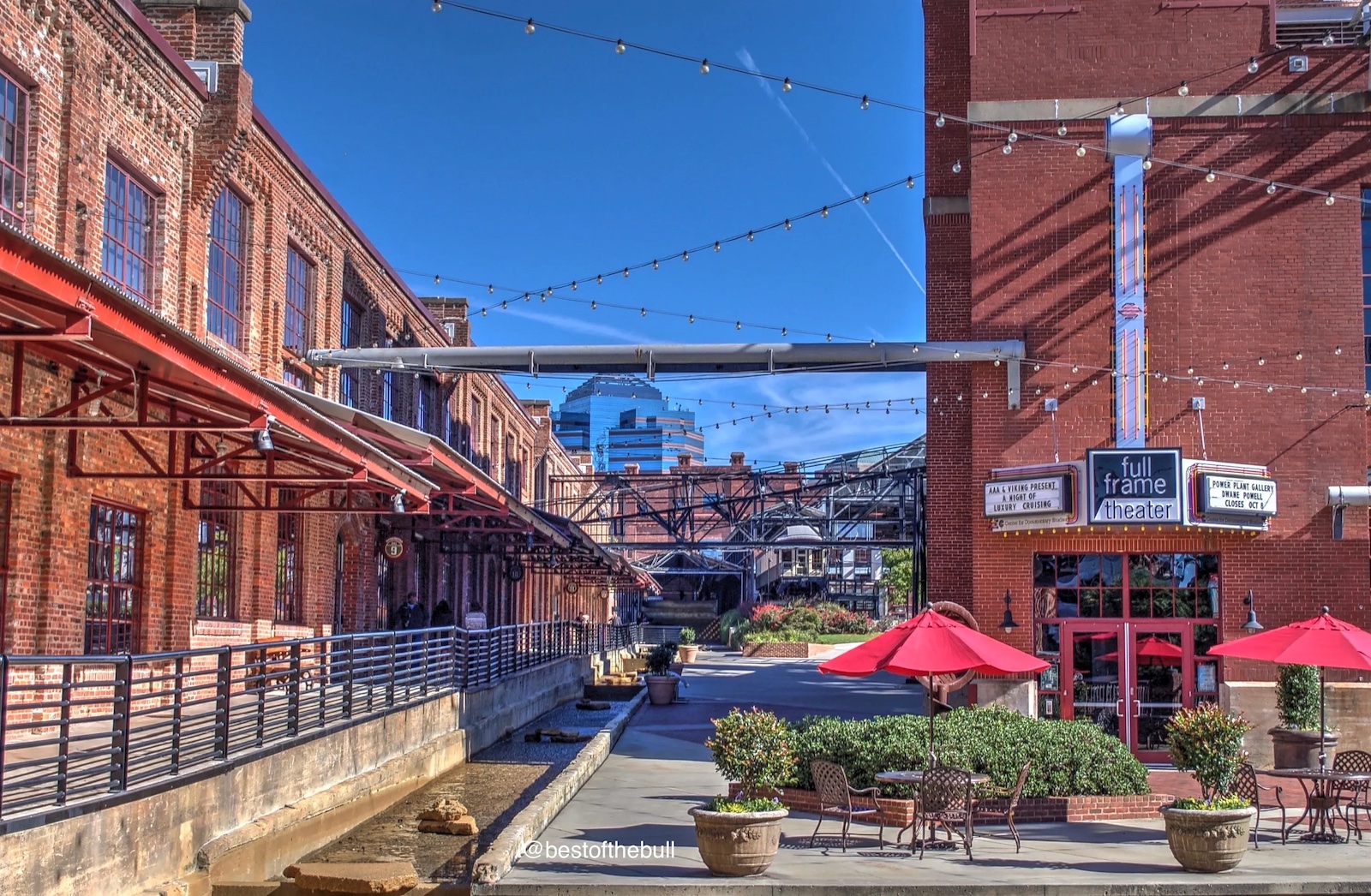
Cost of Living Durham, NC !
There are 279,106 people living in the city of Durham, which is located in North Carolina. The city of Durham, which is also the name of the county it’s in, is often regarded as one of the state’s most desirable residential areas. The majority of people who live in Durham own their homes, giving the city an atmosphere similar to that of a dense suburban community.
There are an abundance of parks and restaurants in the city of Durham. Durham, which is located in North Carolina, has long been recognized as a city that is renowned for its extensive history, academic prowess, and flourishing culinary scene. While the cost of living in Durham, NC, is higher than in some smaller towns, it remains lower than many other major metropolitan areas.
As more people are drawn to this lively community, it is crucial for potential residents there to have a solid awareness of the cost of living in Durham, North Carolina. This detailed guide will walk you through the many costs of living in Durham, from housing and transportation to food and entertainment, and will assist you in making an educated decision regarding whether or not to move to Durham.
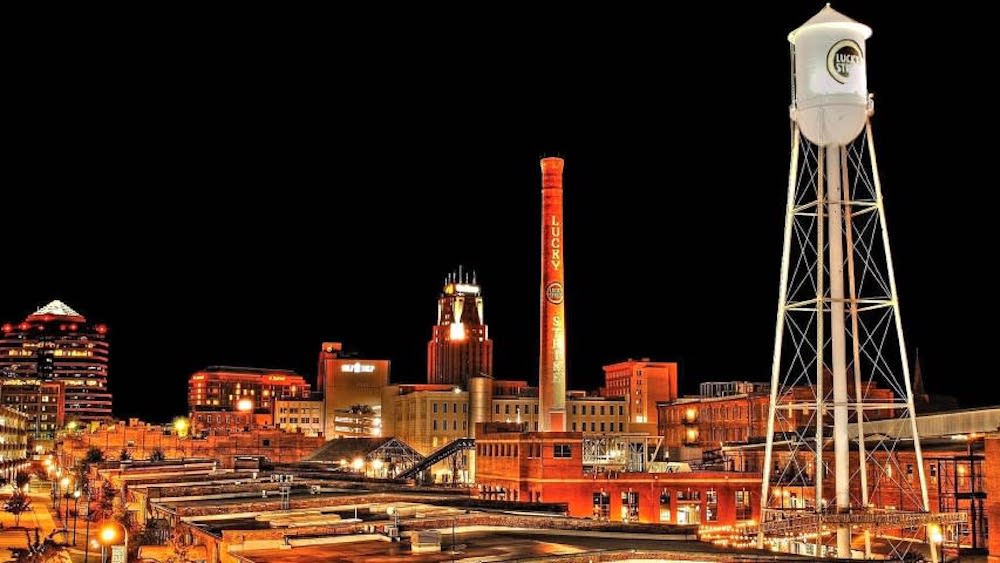
Housing: Finding Your Perfect Durham Home
One of the most significant factors affecting the cost of living in Durham, NC, is housing. As a growing city, the demand for housing has increased, leading to a slight rise in rent and home prices. However, Durham still offers relatively affordable options compared to other major metropolitan areas.
Renting in Durham
The average rent for a one-bedroom apartment in Durham is approximately $1,200 per month, while a two-bedroom apartment can cost around $1,400 per month. Of course, these figures can vary depending on factors like location, size, and amenities.
Homeownership
If you’re interested in purchasing a home, the median home price in Durham is around $275,000. It’s essential to consider property taxes and homeowner’s insurance when budgeting for a home purchase. In Durham, the property tax rate is approximately 1.2% of the home’s assessed value.
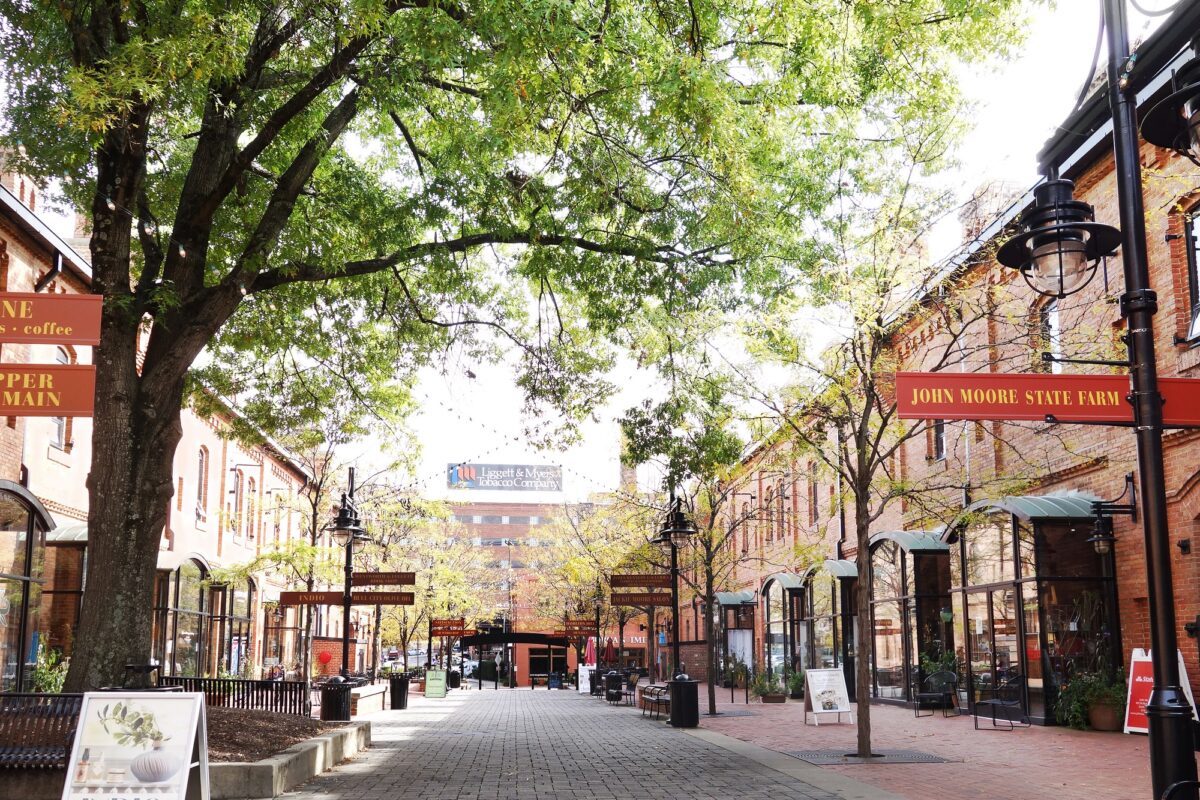
Transportation: Getting Around the Bull City
Durham’s public transportation system, GoDurham, offers affordable options for residents. A monthly pass costs $36, making it an economical choice for daily commuters. However, many residents prefer the flexibility of owning a car, which comes with additional costs like fuel, insurance, and maintenance.
Gas Prices
Gas prices in Durham are generally lower than the national average, with the average price per gallon hovering around $2.75.
Car Insurance
Car insurance rates in North Carolina are also lower than the national average, with Durham residents paying approximately $1,000 per year for coverage. Keep in mind that individual factors, like driving history and vehicle type, will impact your specific rate.
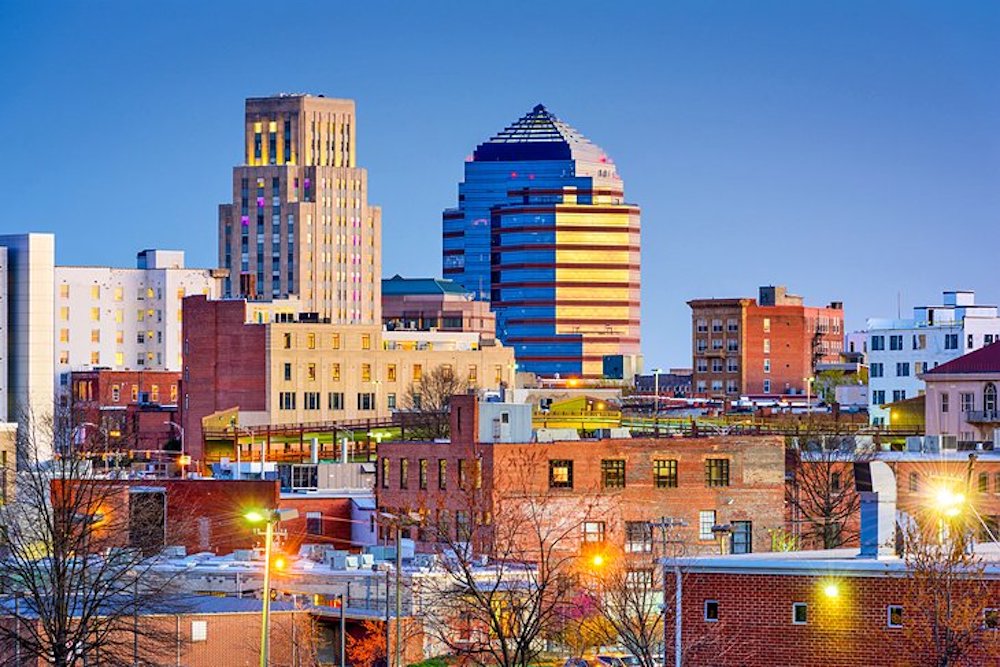
Groceries and Dining Out: Savoring Durham’s Culinary Scene
Durham is known for its diverse food scene, featuring everything from Southern comfort food to international cuisine. The cost of groceries in Durham is slightly lower than the national average, with residents spending around $300 per month on food.
Grocery Shopping
Local grocery stores offer competitive pricing, and there are plenty of farmers’ markets to choose from during the warmer months. These markets provide an opportunity to support local farmers while enjoying fresh, seasonal produce.
Dining Out
With its array of restaurants and cafes, Durham is a food lover’s paradise. The cost of dining out can vary greatly, with an average meal at an inexpensive restaurant costing around $15, while a three-course meal for two at a mid-range restaurant will set you back about $60.
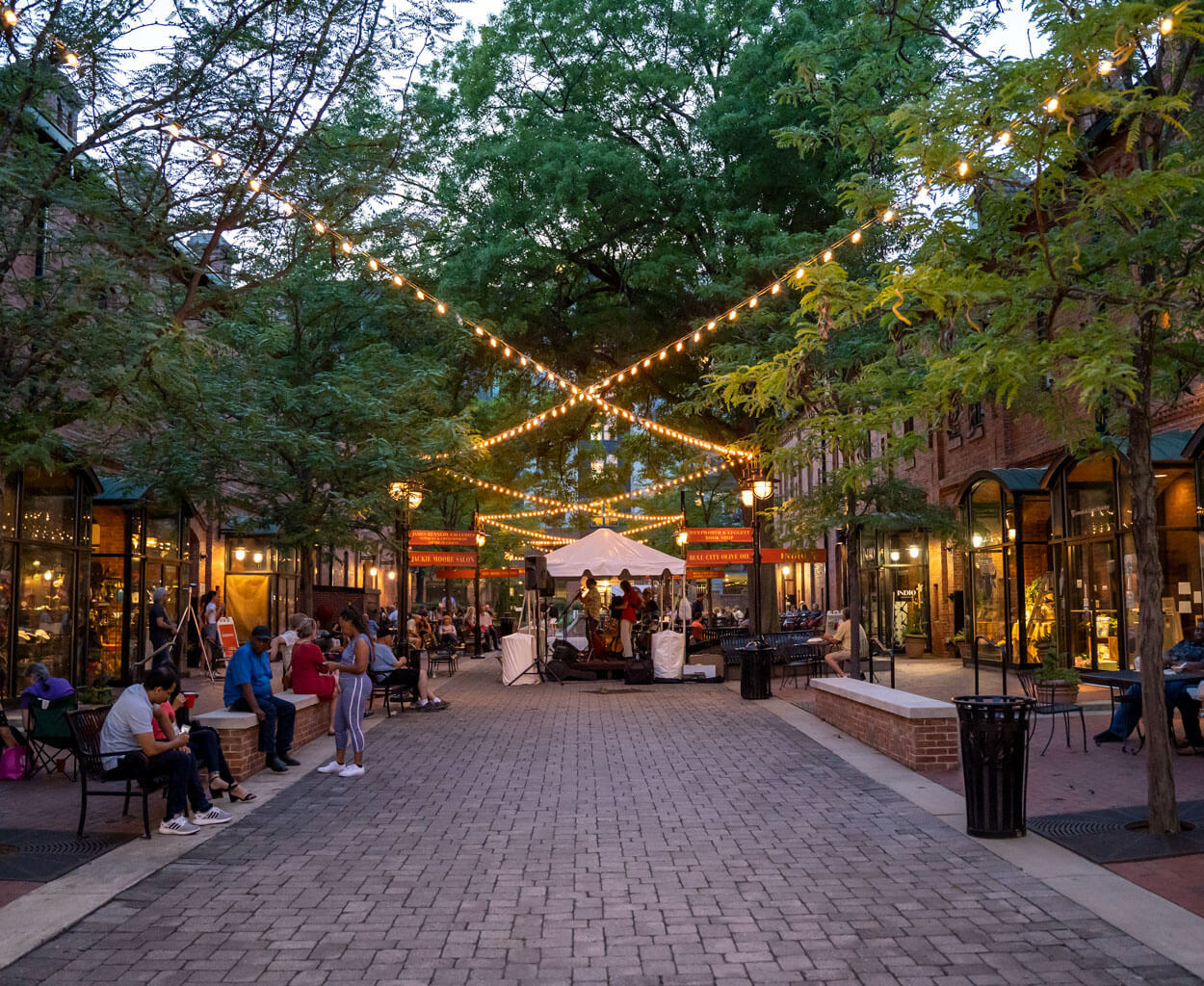
Utilities: Keeping the Lights On
When budgeting for the cost of living in Durham, NC, it’s essential to factor in utility expenses. The average monthly utility bill for a 915-square-foot apartment, including electricity, heating, cooling, water, and garbage, is approximately $150. Internet service in Durham can range from $50 to $100 per month, depending on the provider and plan.
Healthcare: Taking Care of Yourself in Durham
Durham is home to several top-notch healthcare facilities, including the renowned Duke University Medical Center. Health insurance premiums in North Carolina are relatively affordable, with the average monthly premium for an individual plan being around $400. Keep in mind that rates will vary based on factors like age, coverage level, and pre-existing conditions. Out-of-pocket expenses, such as copays and deductibles, should also be considered when budgeting for healthcare costs.
Entertainment and Recreation: Enjoying Life in the Bull City
Durham offers a wide array of entertainment and recreational options, from outdoor adventures to cultural events. The cost of these activities can vary greatly depending on your interests and lifestyle.
Outdoor Activities
With numerous parks, hiking trails, and recreational facilities, Durham is a haven for outdoor enthusiasts. Most parks are free to access, but some activities, like golf or swimming, may require fees ranging from $5 to $50.
Cultural Experiences
Durham boasts a thriving arts scene, with galleries, museums, and live performances to enjoy. General admission for museums like the Museum of Life and Science or the Nasher Museum of Art typically costs around $15, while ticket prices for live performances can range from $20 to $100 or more, depending on the event and seating.
Nightlife and Socializing
Durham’s nightlife scene offers everything from laid-back breweries to vibrant dance clubs. The cost of a night out can vary greatly, with a pint of beer at a local brewery averaging around $5, while cocktails at a trendy bar might cost $10 to $15.
Childcare and Education: Investing in Durham’s Future
For families with children, the cost of childcare and education is an important consideration when evaluating the cost of living in Durham, NC. Public schools in Durham are generally well-regarded, and there are no tuition fees for attending these schools. However, parents may need to budget for expenses like school supplies, field trips, and extracurricular activities.
Childcare
For families with young children, the cost of childcare can be a significant expense. The average cost of full-time childcare in Durham is around $1,000 per month, though this figure can vary based on factors like location and the age of the child.
Private Education
Durham is home to several private schools, which can offer alternative educational opportunities for children. Tuition for private schools varies widely, with some institutions charging upwards of $20,000 per year.
Final Thoughts
Durham, North Carolina, is an attractive city that offers a high quality of life at a relatively affordable cost. By carefully considering factors like housing, transportation, and healthcare, prospective residents can make an informed decision about whether Durham is the right place for them to call home. And if you decide to move there, you will make the correct choice, so you should consider movers in Durham. When you hire experienced movers, you may have confidence that they will arrive when they say they will, treat your things with care, and transport them to your new residence in accordance with the schedule.




